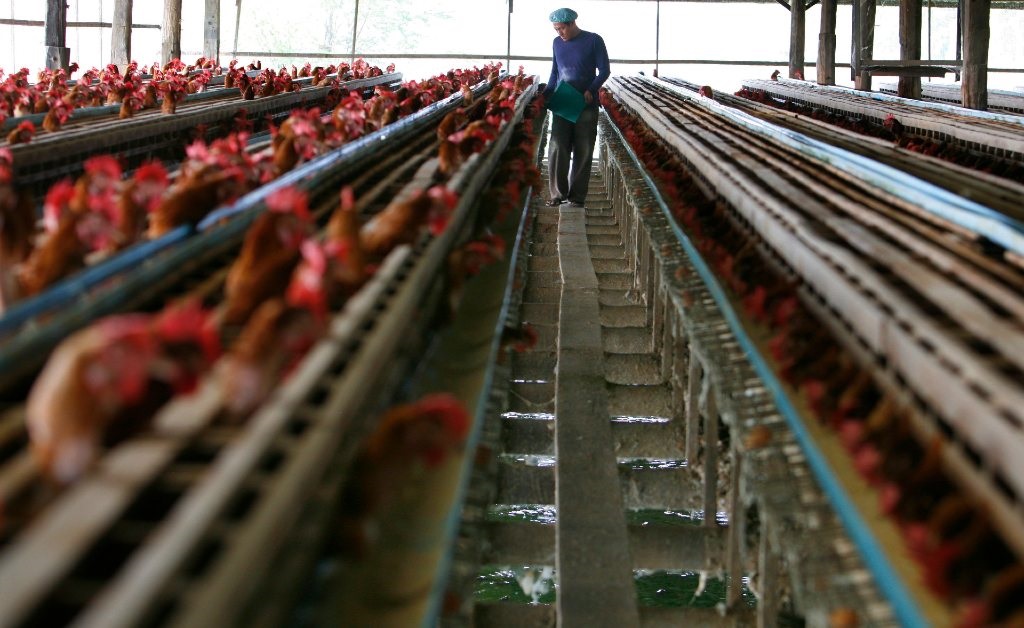
The South African Poultry Association has confirmed a third outbreak of avian flu, this time due to the highly infectious H7 strain.
Paula Bronstein/Getty Images
SA’s top poultry body has confirmed two Mpumalanga farms experienced an outbreak of the highly infectious H7 avian flu strain, which is different from the H5N1 one that wiped out more than a million birds in the Western Cape the past few months.
Although the third outbreak of avian flu in three months was contained, the South African Poultry Association (SAPA), which has over 100 members, said on Tuesday it was concerned because all of the local flareups experienced this year had been spread by wild birds. This made it more difficult to control.
But Izaak Breitenbach, general manager of SAPA’s broiler division, said that the problem was “by no means out of control”.
“The concern though is that our wild birds are positive and therefore there is a good chance for the disease to be spread from wild birds to chickens in more outbreaks than the three we’ve seen and in more parts of the country.”
The latest outbreak began on a small farm in Delmas about two weeks ago before spreading to a larger commercial farm in that area.
The Paris-based World Organisation for Animal Health (WOAH) said, according to Reuters, that a total of 9 500 farm poultry died in the latest South African outbreak, with one one farm seeing 2 000 birds wiped out and the other 7 500.
According to Breitenbach, the poultry that died would have either been deliberately culled or perished from the virus, adding that SA had a “stamp-out policy” that would see poultry culled within a 3km radius of the infections.
Breitenbach, who added he had been told that as many as 3 000 birds had died on the smaller farm, said the H7 strain was also a uniquely South African one that is “not found anywhere else in the world”.
The initial outbreak of avian flu in the Western Cape in April and May was due to the H5N1 virus, which was also responsible for a second outbreak in the George area about two to three weeks ago.
One positive though, said Breitenbach, was all three outbreaks were spread by wild birds and not farm poultry, adding that this was a testament to South African farmers’ stringent biosecurity measures already in place.
He said in total about 1.5 million birds had died in all three outbreaks – either through culling or expiring from the flu itself.